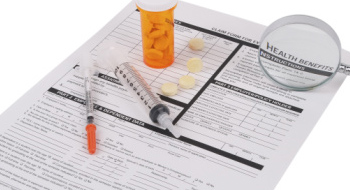
The Canadian Health Care Anti-fraud Association (CHCAA) is hoping to raise awareness of the fight against fraud by spreading information to the public.

March is Fraud Prevention Month, when Canadians are encouraged to get informed about fraud and how they can protect themselves.
One warm evening this summer, while I was sitting on the patio of a downtown restaurant with my girlfriends, someone stole my wallet right out of my purse. Of course, I had everything in it, including my credit cards and personal identification.

The Manhattan district attorney has indicted 106 defendants for a massive fraud against the federal Social Security disability insurance benefits program that resulted in the loss of hundreds of millions of dollars from U.S. taxpayers.

Benefits fraud comes in several forms, including fraudulent claims for health services and disability fraud targeting both employer-sponsored disability insurance and workers’ compensation benefits.

March is Fraud Prevention Month and over the past few weeks, several associations and companies have been working to get the message of fraud prevention out to the general public.

Goldman Sachs is set to pay a $7 million settlement in the face of federal regulators' civil charges that its futures brokerage business failed to diligently supervise activity in trading accounts for two years.

The demand for more expedient and convenient services in the world of health benefits grows every year. And the boundaries of what constitutes an expected level of service are being pushed with the popularity of smartphones and mobile tablet devices.

Some insurance companies now provide online claiming for non-drug benefits (electronic adjudication of drug claims has been around for years). But how has this increase in online claiming affected—positively or negatively—group insurance fraud? What impact has this new claiming channel had upon the “misuse, abuse and overuse of benefits?” Unfortunately, fraudulent activities continue to thrive. […]